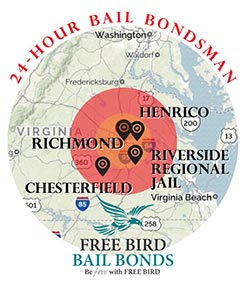Three Legal Glitches Only a Good Bail Bondsman Would Understand
Bail is an extremely important tool that can effectively help a person get a few day of relief, post his detention in jail. An imprisoned person can understand the true value of bail; to him, it is the key to his freedom. This is what makes the bail bondsman’s task so daunting. A good bail bondsman will know his job and how to get his client fast and easy bail. It is the job of every good bail bondsman to be fully aware of the glitches and errors surrounding the legal process and to successfully help his client get through them with ease.
Required Access to Rehabilitation Facilities
Detainees are not arrested on the basis of their lifestyle habit. Hence, it is entirely possible that the client arrested may have a drug or alcohol, or for that matter, even a smoking problem that needs to be addressed. This kind of a problem may deteriorate if the person is kept behind bars, without proper treatment. A good bail bondsman knows that he client will have to be sent to a rehabilitation facility outside the prison. Hence, he must be aware of the procedure required to bail his client out of jail against the racing clock.
Avoiding False and Fraudulent Plea Deals
In many cases, prosecutors and legal authorities can place a false bargain on the table to seek a confession from the detained person. These may include reduced sentences, exclusion of certain serious charges, not pressing for the death sentence, and so on and so forth. However, the detainee, in a state of fear and trauma, may confess to baseless charges, which may not ultimately aid him, but can harm him altogether. It is the prerogative of every good bail bondsman to ensure that his client does not fall for such bargains and instead, gets out on a proper bail.
Negative Bias of the Jurors against the Detainee
The court personnel, by law, are bound to try to keep the jurors away from bias or external influence, either in favor of or against the client. However, no matter how hard they try in their endeavors, the jurors almost always find out somehow that the detained person is behind bars and has not been granted bail. In these situations, they may get a negative image of the arrested person. The ruling may thus go against the detained person. Thus, it is the job of every good bail bondsman to get his client out of bail successfully.






